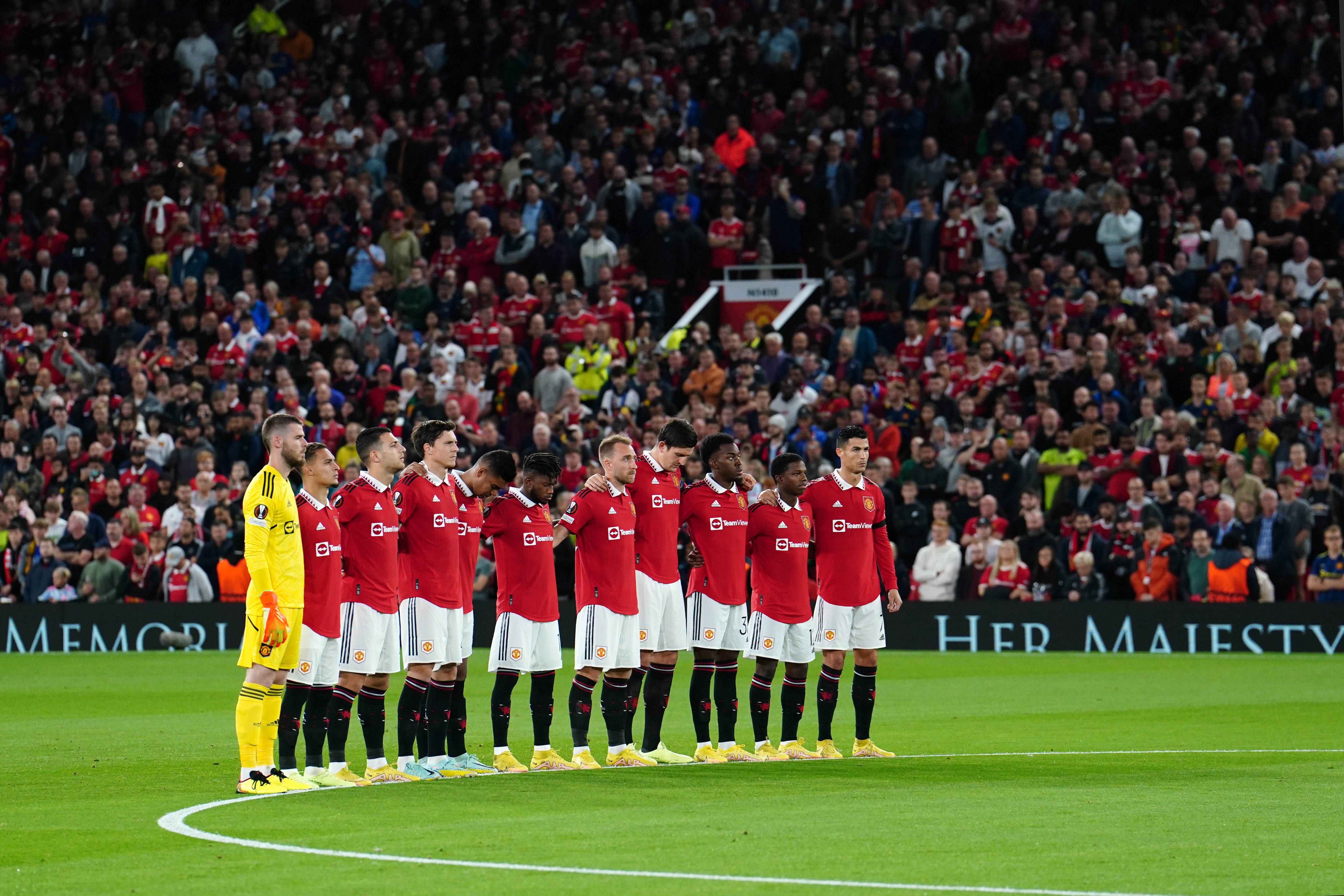Food banks, respect and societal cost: Why football should not have been cancelled this weekend
The game has often led the way in showing respect and solidarity to others and postponing matches will cause economic harm to many

When the Premier League met at 11am on Friday morning, one consideration was paramount, and the reason why the decision took just 20 minutes.
That was that the late Queen Elizabeth II was a patron of the Football Association with Prince William, as well as the monarch for over 70 years, so the only possible conclusion was to postpone. It was purely, to quote a few sources, about “respect”.
That was despite other sports playing on, and the fact that there were a lot of serious elements to respectfully consider. The decision was nothing to do with a lack of policing, something that could be an issue before the funeral next weekend, potentially causing a second successive week of postponed fixtures. That is to be discussed. It could have significant consequences for many.
With the Premier League’s announcement coming just over 24 hours until the first fixture of the weekend, all of the clubs involved had to plan as if the matches were taking place. This meant an entire economy of freelance workers, casuals and employees on zero-hours contracts being told they would be working, a number that ran into the thousands across the game.
Clubs themselves might have had to take a hit on cancellation at 25 per cent of fees, which may not be an issue for the Premier League, but is a big problem outside it. Then there’s the amount of food that goes to waste, with transportation and storage issues ensuring not all of it can go to food banks.
Tens of thousands of fans had, meanwhile, made travel plans, the Premier League’s international popularity ensuring a good number of those would have come from abroad. Many won’t get refunds on travel or hotels. Some provisions are at least possible for those who had booked by train to ensure a voucher refund – if they claim early enough.
Chelsea Women were supposed to play at Stamford Bridge, in what was to be a momentum-building weekend for the women’s game and the Women’s Super League.
Then there’s the most absurd decision of all: the cancellation of football for kids and schools. It is ludicrous, undermining all of the messages about physical activity, especially as so many other sports are carrying on as normal. That badly needs to be overturned.
That all adds up to a significant societal cost, much of it to the Queen’s citizens.
There are a number of polemical arguments that could be made on other pages about how many British people don’t feel strongly about this; that it’s forcing them into mourning; that it’s actually changing the mood. There was a darkly absurd moment during Manchester United’s Europa League match when commentators repeatedly referred to fans having things other than football on their mind, only for some abrasive chants about the owners, the Glazers, to start up.
“These aren’t Victorian times,” one involved source said. “You can’t treat sport like that any more”.
Except, in 1952, when King George VI died, and in 1936, when King George V died, football played on.
That’s another element to it. The sport actually does solemn remembrance very well. While some would have of course insisted that the games are called off, other affected fans would have wanted to use their games to show respect. Does anyone doubt this weekend's games would have been packed? The Football Supporters Association has issued a statement that it “was an opportunity missed for football to pay its own special tributes”.
Above anything, though, there is a pointed symbolism to the people’s game costing people thousands and negatively affecting their lives – and that amid a cost of living crisis of so much financial and emotional austerity – out of deference to what remains an elite institution. And, perhaps, a misplaced deference.
It’s all the more ironic given that sports more associated with the establishment such as cricket, rugby and even horse racing – which was the Queen’s great sporting passion – are carrying on at times when the football will be off.

There is then the fact many people are pointing out how one of the things the Queen was most admired for was stoically carrying on.
Sport, to rightly afford the governing bodies some allowance, was put in a difficult position here. “There was no rulebook,” one source said. In fact, there were no rules at all, but by design. The Department of Culture, Sport and Media issued new guidance on national mourning and specifically stated that “there is no obligation to cancel or postpone events and sporting fixtures … this is at the discretion of individual organisations”. This was also known through planning meetings for years.
When you weigh up all the various elements, including the debate over what actually constitutes “respect”, it is difficult not to conclude football has made the wrong decision. It’s difficult not to ask whether it is purely about public relations and potential criticism for not postponing.
It has just meant that so many of the Queen’s citizens feel the cost.
Join our commenting forum
Join thought-provoking conversations, follow other Independent readers and see their replies
Comments
Bookmark popover
Removed from bookmarks